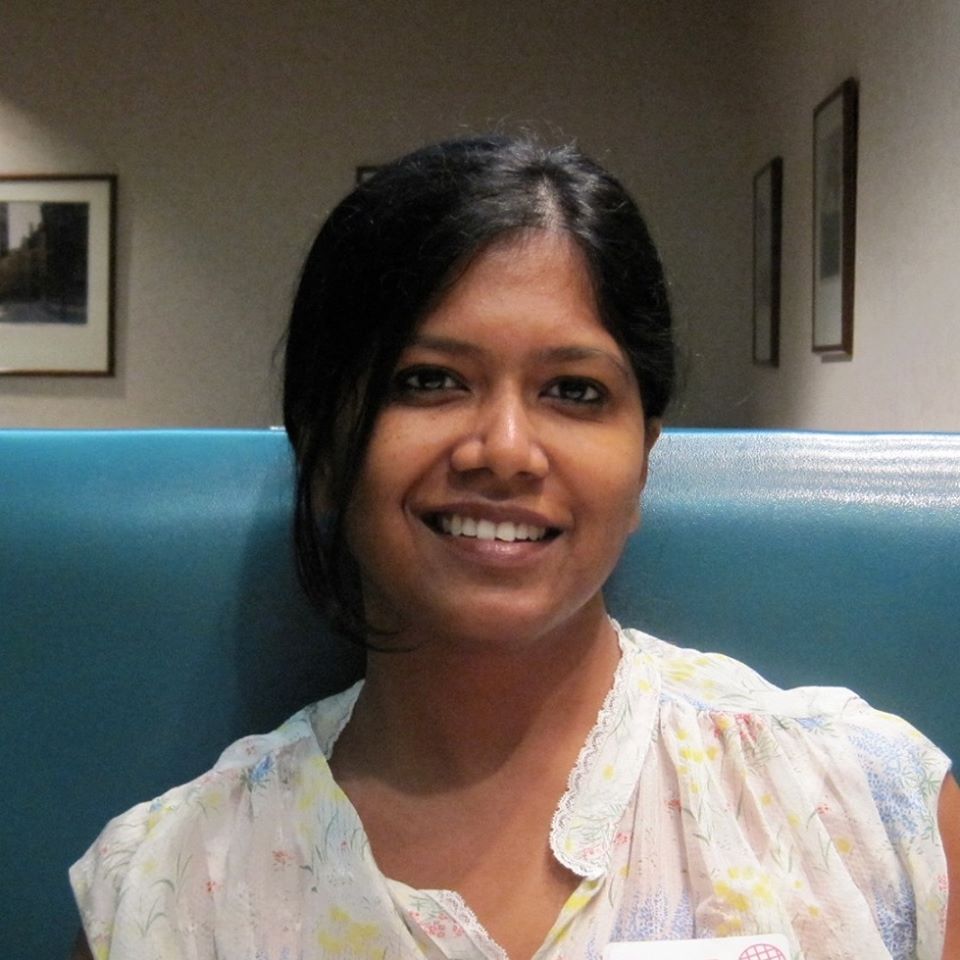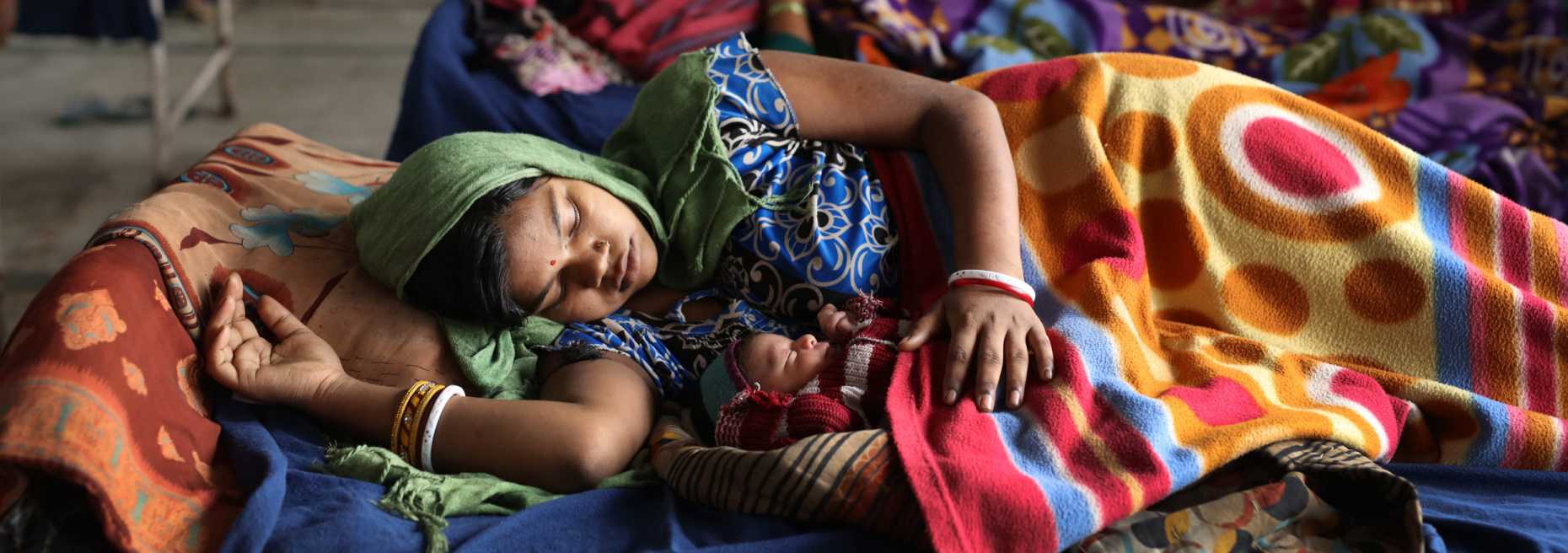Fourth ETH4D Research Challenge: Digital Solutions for Perinatal Depression in India
Meet the grantee of the fourth round grant of the ETH4D Research Challenges. The project aims at improving access to effective treatment option for perinatal mental health in India. It will evaluate the feasibility, acceptability and utility of using a decision-making app for perinatal depression and anxiety in India. In an interview with Dr. Sonali Mohanty Quantius we find out more about the project, what inspired it and how the app may help raise awareness of mental health issues across India.

How did you become aware of the issue of perinatal depression and how did the idea for the app come about?
Perinatal depression (pre and postpartum depression and anxiety) affects 1 in 7 women globally, and the COVID-19 pandemic has made it worse. Besides a personal experience of postpartum depression after the birth of my twins, I had heard many anecdotal stories of undetected and untreated cases within friends and family. However, it was only after performing an online survey did I become fully aware of how widespread and underserved this issue really is. Women from all over the world reached out to me with their stories of undetected/untreated perinatal depression, and it was clearly an issue that needed urgent attention. It was clear that lack of adequate mental health professionals, fear and stigma and logistical issues (such as childcare) prevent women from getting the adequate and timely care that they need, and this is where the idea of a digital solution that is accessible to everyone was born.
Perinatal depression affects women everywhere. Your study focuses on India.
What is the specific situation for women in India when it comes to the diagnosis and treatment of perinatal depression as compared to Switzerland?
Perinatal depression affects a disproportionate number of women in low and middle income countries such as India where they are also less likely to get the care they need. Currently, there are no screening or treatment guidelines which exist in clinical practice in India, leading to millions of women suffering silently. With 34 births per minute in India and conservative estimates of 22% of women experiencing perinatal depression/anxiety, there are still no dedicated maternal mental health services, which leads to an increase in maternal suicides and infanticides. In light of this, a digital solution that can reach all women in India are the urgent need of the hour.
While there are similar challenges in Switzerland in the lack of national guidelines for perinatal screening and treatment, a large difference is the availability of mental health specialists (41 psychiatrists/100,000 people in Switzerland vs only 0.3 psychiatrists/100,000 in India). This, along with the fact that there is a high use of mobile and internet use in India, a digital solution will have a huge impact in increasing access to many women in India who fall through the cracks. A second factor is the screening & diagnosis methods, which are not culturally translatable in India and ,therefore, many women get misdiagnosed. The ETH4D research grant, which will allow us in testing the perinatal digital solution in India, can address at least some of these disparities by allowing everyone to have access to the same high standard of care.

How do you think the app will help raise awareness and overcome the stigma of mental health problems?
The stigma of mental health problems is a global issue whereby it prevents individuals from seeking timely help. This is even more relevant during the perinatal period, when women do not speak out for fear of being judged for not being a ‘good mother’, repercussions (‘what if social services get involved and take my child away?’) and general shame since our society expects mothers to be ‘perfect’. In addition, cultural expectations can crush a woman at this vulnerable time. One of the biggest issues in speaking up is the distrust of how information will be used. Any solution that addresses this, needs to ensure complete privacy, security and integrity of this highly sensitive information. In this regard, we are creating a secure and citizen-controlled management of personal health data in this app, which has been at the focus of Prof. Dr. Ernst Hafen’s (Co-PI on this grant) research over the past years. We intend to establish a local cooperative (like MIDATA.coop) with its own platform infrastructure in India. This will ensure that all generated data in India from this app will remain in a local, citizen owned ecosystem to create a fair data ecosystem that puts the women at the centre of their own data aggregation. Our partner in this collaboration, White Swan Foundation will support raising awareness of this issue. We hope that ultimately, with an easily accessible, highly private and trusted digital solution, women will overcome the stigma of discussing mental health issues at this time.
You are working together with the National Institute of Mental Health & Neurosciences (NIMHANS) and White Swan, a foundation that delivers knowledge services for mental health. What is the role of your partners in the ETH4D Research Challenge?
NIMHANS is one of the premier medical institution in Bengaluru, India with the first dedicated inpatient mother-baby unit (MBU) for perinatal depression and anxiety. Dr. Prabha. S. Chandra, (our PI in India for the grant) is a Professor and Head of Psychiatry there. She has served as a Temporary Advisor to the WHO and UNAIDS and is the Secretary of the International Association of Women’s Mental Health, a nominated member of the World Psychiatric Association and an executive member of the Marce International society. We are testing the feasibility of the digital app prototype with NIMHANS to assess the effectiveness and usability in the Indian social and cultural context. However, even the best clinically validated intervention available to women and healthcare professionals will not be utilised if there is not enough awareness and literacy of perinatal conditions and available interventions in India. White Swan Foundation is a not-for-profit organisation that collaborates with mental health experts, and organisations across the world to deliver best-in-class knowledge on mental health in India. Our research on the best practices of perinatal mental health care based on a well validated study along with a digital solution will enable White Swan to conduct an effective outreach campaign that will help reach women and caregivers across India and enrich their community outreach with clinically validated information.
How will the results of the ETH4D research challenge help you to improve the app and the diagnosis and treatment of perinatal depression more generally?
Perinatal depression is a global issue that transcends all cultures. Our hope is that a digital solution can address some of these issues and easily screen and connect women to care at the time when it is needed the most in a secure, private citizen controlled way. We are planning to conduct a similar study in Switzerland with our digital app soon. One of the outcomes of the ETH4D research challenge will be to identify which features of the app deliver the maximum value in the appropriate cultural and social context and we hope that this will help us optimise the app more generally rather than using a ‘one size fits all’ depression app to support women at this difficult time.
Find out more about the ETH4D Research Challenges here.